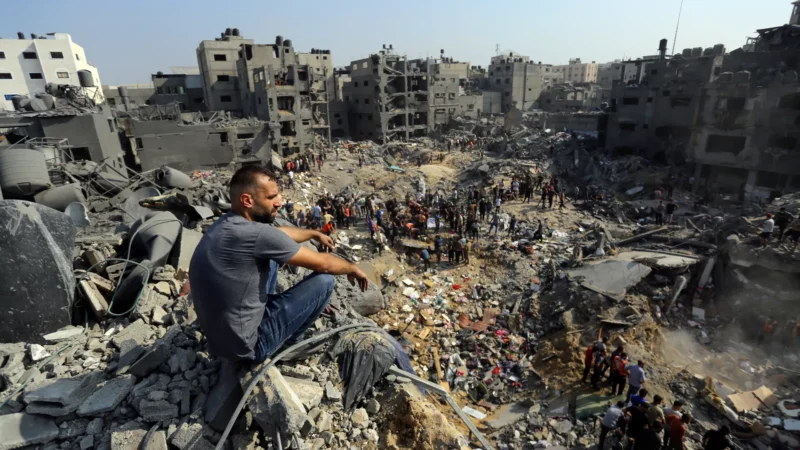Ukraine-Russia crisis: What to know about the fears of war

In a grim backdrop to intense diplomacy aimed at preventing war between Russia and Ukraine thousands of troops sent by Moscow to Belarus engaged in military drills. Convoys of Russian anti-aircraft missile systems rumbled along snow-covered roads as part of the maneuvers.
Meanwhile, more NATO forces also are on the move, heading to the alliance’s eastern borders, while Britain is putting 1,000 troops on standby to respond to a possible humanitarian crisis in Eastern Europe i f Russia invades neighboring Ukraine and fighting breaks out.
Russia has concentrated more than 100,000 troops near Ukraine’s border, but says it has no invasion planned. It wants guarantees from the West that NATO won’t allow Ukraine and other former Soviet nations to join the Western military alliance.
Foreign policy advisers from Germany, France, Russia and Ukraine, who met in Paris last month, are scheduled to have another round of talks in Berlin. They are expected to try to reach a common interpretation of a 2015 peace agreement that helped end full-scale hostilities between Ukrainian forces and Russia-backed separatists in eastern Ukraine.
Here’s a look at what is happening where and why:
BORIS JOHNSON AT NATO, THEN POLAND
British Prime Minister Boris Johnson and NATO Secretary General Jens Stoltenberg warned Thursday that Russia’s ongoing military buildup near Ukraine poses one of the biggest threats to European security in recent memory.
“This is probably the most dangerous moment, I would say in the course of the next few days, in what is the biggest security crisis that Europe has faced for decades, and we’ve got to get it right,” Johnson told reporters at NATO headquarters in Brussels.
The British leader said he doesn’t believe that Russian President Vladimir Putin has decided to launch an action against Ukraine. But, Johnson said, “our intelligence, I’m afraid to say, remains grim.”
Stoltenberg warned: “The number of Russian forces is going up, the warning time for a possible attack is going down.”
He stressed that “NATO is not a threat to Russia, but we must be prepared for the worst.”
Stoltenberg said he sent a new letter to Russian Foreign Minister Sergey Lavrov repeating NATO’s invitation to a series of talks on improving European security.
— Lorne Cook in Brussels and Jill Lawless in London.
___
TRUSS AND LAVROV TALKS
British Foreign Secretary Liz Truss held talks with Lavrov in Moscow, with Truss again warning that attacking Ukraine would “have massive consequences and carry severe costs.”
Truss urged Russia to “abandon Cold War rhetoric” and choose the diplomatic route to avoid bloodshed in Ukraine.
Lavrov was in no mood to accept a lecture from the West during the first meeting in four years between Britain and Russia’s top diplomats.
“Ideological approaches, ultimatums and moralizing is a road to nowhere,” he said.
The British diplomatic push continues later Thursday as Johnson travels to Warsaw to meet Polish leaders.
— Sylvia Hui in London
___
UKRAINE ACCEPTS TURKEY’S MEDIATION OFFER
Turkish Foreign Minister Mevlut Cavusoglu says Ukraine has accepted Ankara’s offer of mediation to reduce the tensions with Russia, while Moscow has not ruled out the idea.
“Our discussions with both sides are continuing with sincerity,” Cavusoglu told state broadcaster TRT. “The Ukrainian side wants this. The Russian side has not closed the door, but we will still have contacts with them.”
Without naming any countries, Cavusoglu also criticized some Western diplomatic efforts, saying they were stoking tensions instead of easing them.
“Are there tensions? Yes. Are there risks? There are. Is the situation fragile? It is. There is concern, there is the risk of a possible conflict. But to announce this, like some Western countries are doing, through megaphone diplomacy is of no benefit,” Cavusoglu said.
— Suzan Fraser in Ankara.
___
Britain is putting 1,000 troops on standby to respond to any “humanitarian crisis” in Eastern Europe sparked by a Russian invasion of Ukraine. The U.K. fears a large-scale incursion could cause a mass displacement of people from Ukraine to neighboring countries.
The U.K. is also sending hundreds of troops to Estonia and Poland as part of a NATO show of strength.
Johnson is expected to offer to deploy more RAF jets to Southern Europe and to send Royal Navy vessels to the eastern Mediterranean.
___
Follow all AP stories on the crisis over Ukraine at https://apnews.com/hub/russia-ukraine






